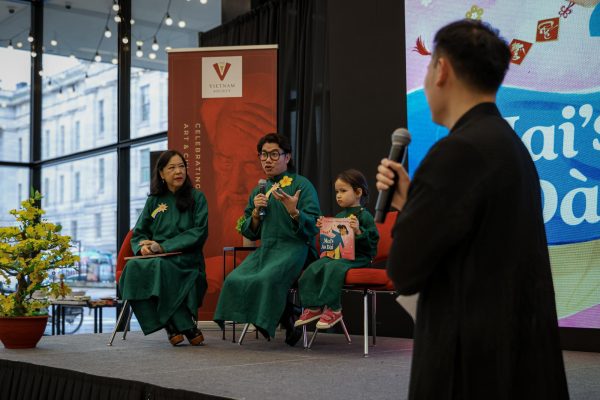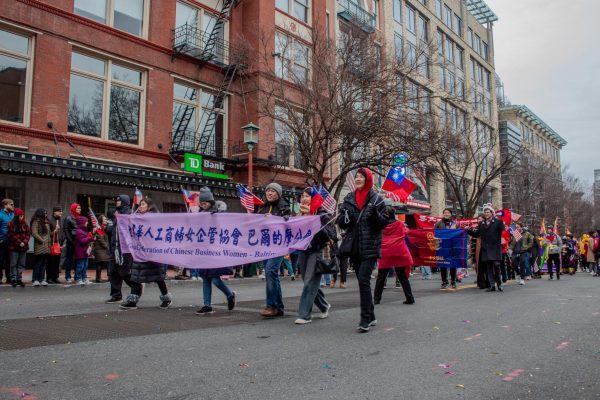Review || Film: Matt Shepard and Fighting to Remember Hatred
On a star-filled night in Wyoming in 1998, a young man lay in a pool of his own blood, the wind and stars his companions at the final lucid moments of his life. The man was Matthew Shepard, a 21-year old gay student in Laramie, Wyoming. He had only just begun to integrate into the LGBTQ community, and his sexual identity led to his death in one of America’s most shocking and notorious hate crimes. Ensuing protests and rallies would catalyze a change in American values and priorities, leading to President Obama signing the Matthew Shepard and James Byrd Jr. Hate Crimes Prevention Act into law in 2009.
But Shepard was more than a martyr. He was an adventurous, intelligent young man who wanted to see the world, and had already explored a large chunk of it. He was a son and a brother. And to his friends, he was just Matt.
To one friend in particular, Michele Josue, Matt’s story–not of his death, but of his life–was one she could not forget. Josue directed the feature documentary “Matt Shepard is a Friend of Mine,” and it it she captures just who Matt was before he became a symbol.
“Matt Shepard is a Friend of Mine” debuted in 2014 to award-winning acclaim, but in its second year it received additional attention thanks its partnership with React to Film. React to Film is a national organization that brings social justice issues to schools and college campuses, including AU, in order to start a discussion about the issues. When React to Film AU screened “Matt Shepard is a Friend of Mine” on April 7, they engaged the audience with an online discussion with Josue as well as a panel discussion with LGBTQ rights advocates.
Josue explains in the film that she felt that Matt’s story was not finished because “the hate that killed him is still here today.” Josue worried that the world forgot the lessons that Shepard’s death taught us, in part, because they do not know the vibrancy and potential of his life as Josue did. “If the world knows our Matt, the real Matt, they won’t be able to let him go either,” she said.
The film moves chronologically through Matt’s life. It warms the heart to see home videos and pictures that characterize Shepard’s family in its happy, everyday life before Matt’s death. Josue frames the film around Shepard’s friends who speak of their interactions with him growing up in Wyoming, attending international boarding school in Switzerland while his father worked in Saudi Arabia, and living in Denver and Wyoming. Matt is characterized throughout as a giver and a helper who loved to make others happy. His friend in boarding school, Rick Mach, explains “He was in the center of all of us whether you knew it or not.”
The sentimental documentary examines journal entries by Shepard to give the audience a sense of who he thought he was. His confidence and happiness, particularly while traveling the world on school field trips, shattered on a trip to Morocco. His friend Gina van Hoof recalls Shepard arriving at her hotel room at 2 a.m., shirtless and crying, after being raped and beaten by six men in an alley.
“He just kept screaming and screaming and screaming,” van Hoof said. “Given that Matt was gay and he didn’t even want to tell anyone, I think he wanted to go out and just be himself. He was in a foreign country. There are times when I have guilt about our trip. Would our lives have been different? I think he lived with that fear likely every day, and it’s hard to function like that.”
Shepard’s mother agrees that, had it not been for Morocco, her son’s entire life might have been drastically different from what occurred next. Following the attack, Shepard turned shy and depressed, withdrawing from former passions, such as acting. Shepard graduated high school and attended college in North Carolina for a short time, soon deciding to come out to his parents. He expected backlash but only received acceptance. After leaving North Carolina and spending an unhealthy year in Denver, Shepard decided to return to Wyoming and enroll in the University of Wyoming in Laramie. In his journal he said, “I am here because I am depressed and confused. I want my life to be happy.” The move did help Shepard. On the day of his attack, Shepard told an old teacher and friend that he was happy and beginning to make friends, including some in the campus LGBTQ community.
That night, Shepard entered a bar, alone, where Aaron McKinney and Russell Henderson were drinking. The two devised a scheme that involved them hitting on Shepard, offering to take him home and robbing him on the way. But that wasn’t what actually happened. They beat him in the car, took his wallet, kept beating him, drove him to a prairie, took him out and tied him to a fence where they continued beating him.
Officials found him 18 hours later. They determined that the butt of a gun hit on the back of his neck left him in a vegetative state, Though Matt would survive another six days in a coma, doctors recognized this blow to the head as the one which destroyed Matt as the world knew him.
While Josue spends less time on Shepard’s death than on his life, visceral pain threads throughout the film following the crime, especially as friends reflect on the investigation, funeral and the Shepard parents’ decision to spare the murderers the death penalty. Though the attack occurred 17 years ago, many in the audience cried as though the tragedy were fresh.
This emotional connection was one of Josue’s intentions. In her discussion with the audience, she shares how she wanted to address the more emotional side of Matt’s story and access people’s empathy, rather than make a political film.
A combination of tragic events led up to her deciding to make the movie. At the time she was editing it, Taylor Clementi of Rutgers University had just committed suicide over cyberbullying regarding a video on the Internet of him having sex with a man, filmed and posted without his knowledge. This was the final death that pushed Josue towards making the film. She felt frustrated by the many people being hurt and committing suicide over their identities so long after Matt’s death.
The panel discussion that followed focused on how the audience could combat hate and a lack of understanding in local communities, as well as make a positive impact on the lives of LGTBQ youths. One of the panel speakers, Matthew Bruno, the coordinator for LGBTQ programming at AU’s Center for Diversity and Inclusion, offered several ways for the audience members to support and enhance their understanding of their peers.
“Sharing stories is really important, and the impact it has on us is super important because we don’t necessarily know unless we ask,” Bruno said. “It has to go beyond kindness[….] We have to somehow subsume it with love in a way that is really knowing people[….] Getting to know everyone as people on the individual level is really important, and I think that’s why we’re seeing [negative, non-inclusive] people on Yik Yak and all these social media sites–because we don’t take the time to actually love everybody in our community. So I can say bad things about them, I can judge them, I can out them, because we’re not seeing them as human beings.” For Bruno, love and listening come first in making the community stronger and more inclusive.
For those who want to react, panelist Suzanne Greenfield, the director of the DC Office of Human Rights Citywide Bullying Prevention Program, suggests volunteering with afterschool programs through the office in order to show younger kids an accepting and open-minded perspective from someone closer to their own age with whom they can relate. For some kids, being seen and acknowledged as they are can have a huge impact.
Josue agrees with both the panelists in her parting words to the activists in the audience: “You can never underestimate the power of kindness and compassion–and that was a lesson I learned from Matt in his life, not his death.”











